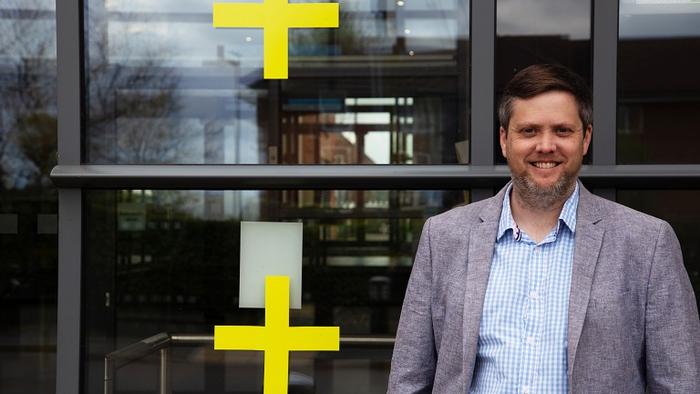Harper Adams University Professor Explores Strategies for Fair and Sustainable Change in Welcome Lecture
Changes to agri-food systems need to be discussed frankly with those affected and carried out fairly or risk opposition, a leading Professor has warned in his first lecture in his new role.
And he has also emphasised that ensuring these transitions are fair will mean supporting farmers’ resilience and mental health to help them cope with these transitions.
Professor David Rose, the Elizabeth Creak Chair in Sustainable Agri-Food Systems at Harper Adams University, focused on what needs to be done to achieve change in his Welcome Lecture at the University, which took part in front of invitees both in-person and online.
In the wide-ranging hour-long lecture, which you can view above, he explored five aspects of change:
- What ‘change’ in agri-food systems means
- What ‘just’ change looks like
- The capacity of farmers and others to adapt and change
- How change can be encouraged
- And finally, how people can be supported to cope with change.
Using the metaphor of a caterpillar’s metamorphosis to talk about change and its inherent complications, Professor Rose said: “We have lots of different ways of producing food, different farming systems, different people who produce that food – so we have lots of different starting points to begin with.
“We then don’t have one single end point – there’s not one species of butterfly, there’s potentially lots of different outputs that we want: clean air, cleaner water, enhanced biodiversity, protecting the livelihoods of people and feeding the world.”
Professor Rose noted that not all of these outputs would be met in the same way – and that some might mitigate against the others. As changes occur, each will have winners and losers – underlining the importance of ensuring changes in agri-food systems and agriculture were fair.
He added: “It’s very important we have these conversations, because a just transition and whether food producers and others involved in this system think that the changes they are being asked to, or told to make, are fair or not underpin many of the protests we have seen in recent years.”
Showing images of protesting farmers in Wales, Europe, and India, Professor Rose noted many occurred as the farmers involved had felt changes they were being expected to make were unfair.
He added: “I think a lot of the time it’s how the changes are being made: sometimes, it’s the outputs, the goals that people are protesting about: that Net Zero, for example isn’t something we should be moving towards – and I would argue very strongly we have to enable the inclusion and conversations to happen about the how, rather than the what: if we start to dilute the goals of Net Zero and more sustainable agriculture, we’ve got a real problem.”
Professor Rose challenged his audience to consider who was included – and excluded – in changes to agri-food systems and what those decisions meant, adding: “Because everybody eats, everybody consumes food, feasibly everybody could be a stakeholder in agri-food transitions.
“I think it is often the case that we move to involve people in the food industry over other humans – and also non-humans that are affected by different ways in which we do agriculture.”
However, he also emphasised that change takes time – and, through examining work by both DEFRA and AHDB, explored ways in which stakeholders may – or may not be allowed to feel they were included in changes.
The disruptive element to all change which Professor Rose identified in his lecture can also, he noted, affect mental health – and he explored how these changes can exacerbate existing stress for farmers.
He explored the importance of integrated social and business support for farmers, and how this – and support for farmers’ mental health – was key to ensuring they were ready and resilient to make changes and transitions.
He added: “Every day on farm is stressful in some way, because there is a potential for something to go wrong.
“Alongside all of the things that farmers have to deal with – bad weather, animal or crop disease, et cetera, that is exacerbated now at a period of greater policy change – whether it is with ELMS, whether it is with Net Zero targets, farmers are having to navigate sometimes very complicated changes in policy and implement and learn about new ways of farming at a time when all the other challenges in agriculture remain.
“Helping farmers cope with this change, as well as implement the changes, is very important – and it is work that is being increasingly done around the world, to look at the mental well-being of farmers and how you help them cope with change.”
Concluding, he added: “Yes, transitions are disruptive but that doesn’t mean we shouldn’t do them.
“We have to ensure transitions are fair and think about the costs and benefits and how we include; some people need more help than others; change needs incentivising for the long term; and, ideally, needs to include the social support that underpins farmers’ and other food producers’ ability to be able to adapt.”

